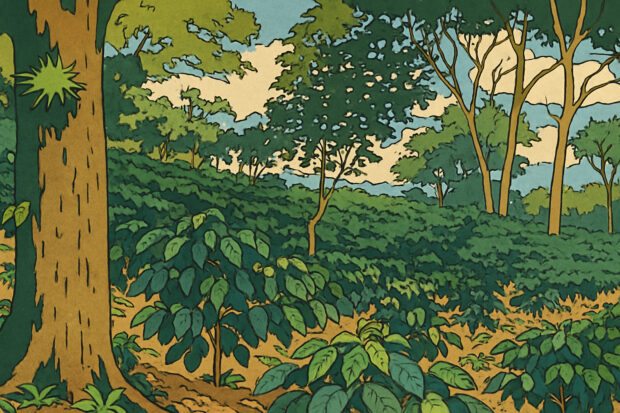
"Overall, what drives improved coffee flavor is relatively unknown, with likely many complex factors being involved,"
"However, evidence from our study suggests that the bacterial community in the soil and cherries may play a role in coffee quality outcomes."
"We found, using amplicon sequencing, that soil and cherry bacterial communities differed between sun and shade farms, and between farms that did and did not produce specialty flavored coffee, with shade + flavor farms notably distinct,"
"Flavor presence was predicted by the abundance of multiple bacterial strains in soils and cherries, but correlations with flavor differed between sun and shade systems."
Different crop management systems (full sun vs. shade) correlate with distinct bacterial communities in soil and on coffee cherries. Samples from 22 Colombian farms (320 soil and 320 cherry samples, Castillo-variety arabicas) showed that farms producing specialty-grade flavor had bacterial community differences, particularly shade farms with flavor. Amplicon sequencing indicated that flavor presence was predicted by abundance of multiple bacterial strains in soils and cherries, with correlations differing between sun and shade systems. Rising global demand for coffee is encouraging full-sun monocrops, threatening habitat and biodiversity, creating urgency to understand microbial influences on coffee quality.
Read at Daily Coffee News by Roast Magazine
Unable to calculate read time
Collection
[
|
...
]